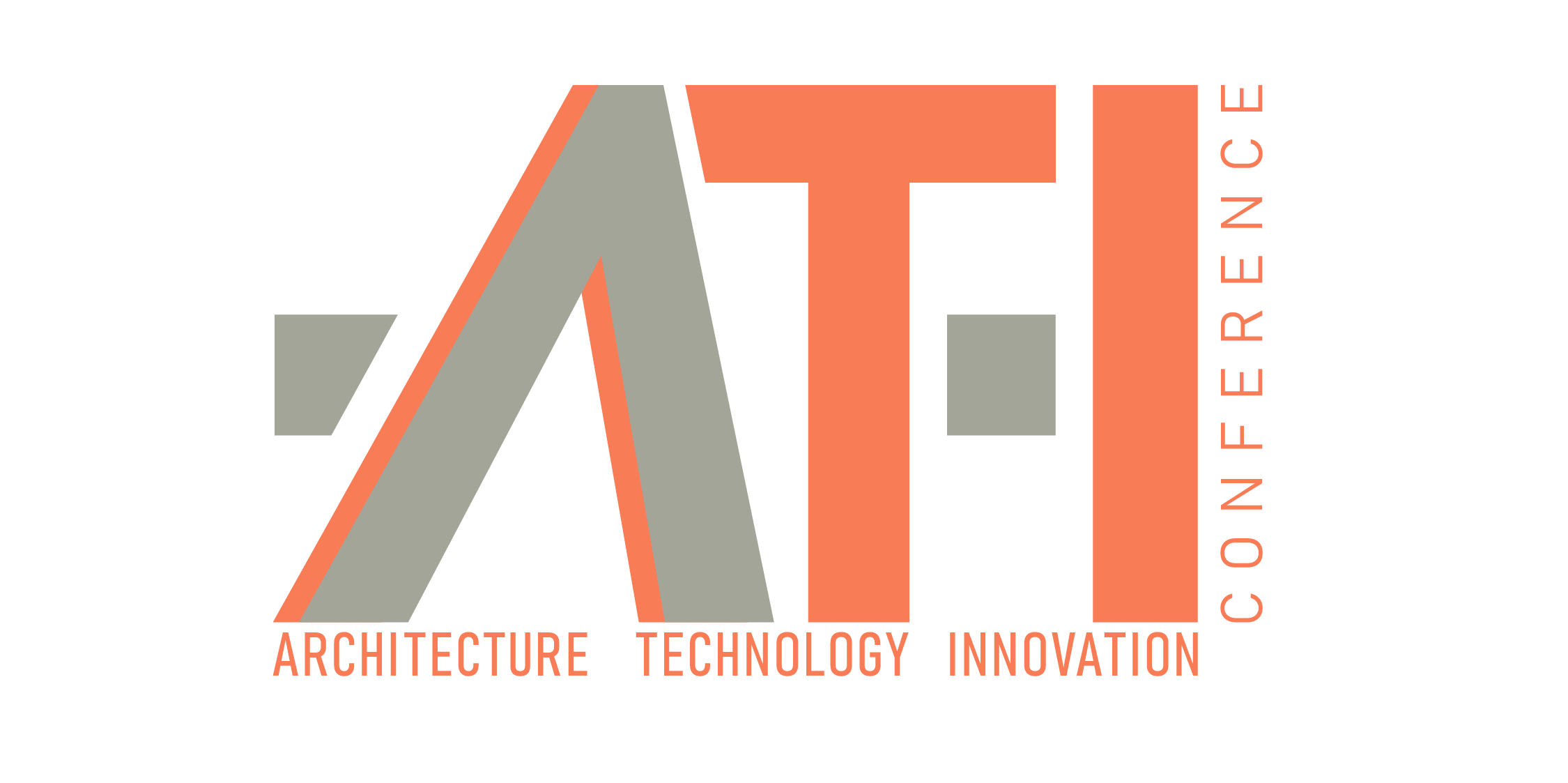Please submit your full paper using the template below.
The ATI2024 Conference addresses the use of innovative technologies in architectural design and education, through the themes and topics listed below.
Authors of accepted abstracts should prepare their full papers using the ATI template. Scroll down to see the link
Production
This theme encompasses topics related to the innovative processes of contemporary architectural production. This theme includes, but not limited to:
- Digital technologies in architectural production, Digital fabrication, Robotic fabrication, Additive manufacturing, Robotics and automation
- Deconstruction & disassembly, Reuse, Prefabrication, Modular constructions, Construction Management
- Structures, Lightweight structures, Structural form-finding, Structural morphology
- Temporary architecture, Prototyping, Emergency Architecture, Pop-Up structures
- Sustainable construction, Natural materials, Timber construction, Renewable building materials, Low-tech architecture
- Responsive facade, Kinetic structures, Adaptive structures, Smart materials
- Adaptive Building Systems, Building Envelopes
Design and Practice
This theme focuses on cutting-edge and innovative technologies in architectural design and practice, encompassing interdisciplinary approaches. This theme includes, but not limited to:
- Digital design, Parametric design, Computer-aided design, Building information modelling
- Artificial intelligence, Machine learning, VR/AR/XR in Architecture
- Interdisciplinary practices, Holistic design, Design collaboration, Co-design
- Design for disassembly, Sustainable practices, Circular projects, Circularity in the built environment, Resilient design
- Biophilic design, Biodesign, Ecology in architecture, Biomimetics, Multispecies cohabitation
- Design tools and technology, Topology optimization, Algorithms, Data-driven design
- Smart Applications in Architecture, Internet of Things
Building Science and Technology
This theme revolves around emerging and state-of-the-art building science and construction technologies. This theme includes, but not limited to:
- Building envelopes, Facade design
- Energy efficiency, Environmental performance, Building performance, Performance-based design, Daylight Optimization
- Building physics, Thermal comfort, Indoor environmental quality, Acoustics, Lighting
- Green buildings, Bioclimatic architecture, Regenerative design
- Environmental impact of construction and operation of buildings, Life cycle assessment
- Building refurbishment, Retrofitting of buildings, Restoration
Community, Space and Culture
This theme includes, but not limited to the topics on the effects of advances in technologies on community, space and culture in a variety of scales, such as:
- Micro living, Housing projects, Social housing, Interior architecture
- Emergency architecture, Disaster resilience, Resilient housing, Earthquake architecture
- Public space, Urban design, Urban ecology, Resilient cities, Urban health, Smart cities
- Space and digital culture, Spatial justice, Spatiality and technology
- History and theory of technology in architecture, Techno-aesthetics, Tectonics
- Augmented and virtual reality, Digital media, Technological representations of space
- Urban archeology, Cultural heritage, Adaptive reuse
Education
This theme enquiries into the future of architectural education and the role of technology in shaping pedagogy. This theme includes, but not limited to:
- Digital learning, Digital technologies, Gamification, Human-computer interaction, Ethical use of AI
- Sustainable practices, Interdisciplinary approaches, Research practices, Cross-cultural approaches
- Design cognition, Design education, Design process, Design research
- Learning spaces, Situated learning, Design thinking methodologies, Experiential learning, Cognitive development
- Assessment and evaluation methods, Curriculum development
Abstract Submission Deadline (CLOSED)
Registration (Open)
Abstract Acceptance Notification
Early Bird (Extended)
Full Paper Submission Deadline
Full Paper Acceptance Notification
ATI2024 Conference
February 15, 2024
February 1, 2024
March 1, 2024
June 1, 2024
June 21, 2024
August 18, 2024
October 3-4, 2024
The authors of selected papers will be invited to prepare an improved manuscript, to be submitted to:
- Architecture Civil Engineering Environment (ACEE) Journal [indexed in ESCI (Web of Science)] https://acee-journal.pl/
- VITRUVIO – International Journal of Architectural Technology and Sustainability [indexed in ESCI (Web of Science), Scopus] https://polipapers.upv.es/index.php/vitruvio/index
- Mehran University Research Journal of Engineering and Technology* [indexed in ESCI (Web of Science), DOAJ] https://publications.muet.edu.pk/index.php/muetrj
- New Design Ideas* [indexed in Scopus] http://jomardpublishing.com/journals.aspx?lang=en&id=10
- Journal of Architectural Sciences and Applications [indexed in TR Dizin, EBSCO, DOAJ], https://dergipark.org.tr/en/pub/mbud
- UOU Scientific Journal / Issue # 8 Radical futures [indexed in SHERPA/RoMEO, DOAJ, Dialnet], https://revistes.ua.es/uou/index
Notes:
- Final publication is subject to a successful peer-review, conducted by each journal
- *Journal asks for a publication fee (APC). Reductions may apply if there is a significant number of papers submitted from the ATI conference.
- All abstracts will be published in the ATI2024 Conference Proceedings, which includes an ISBN.
